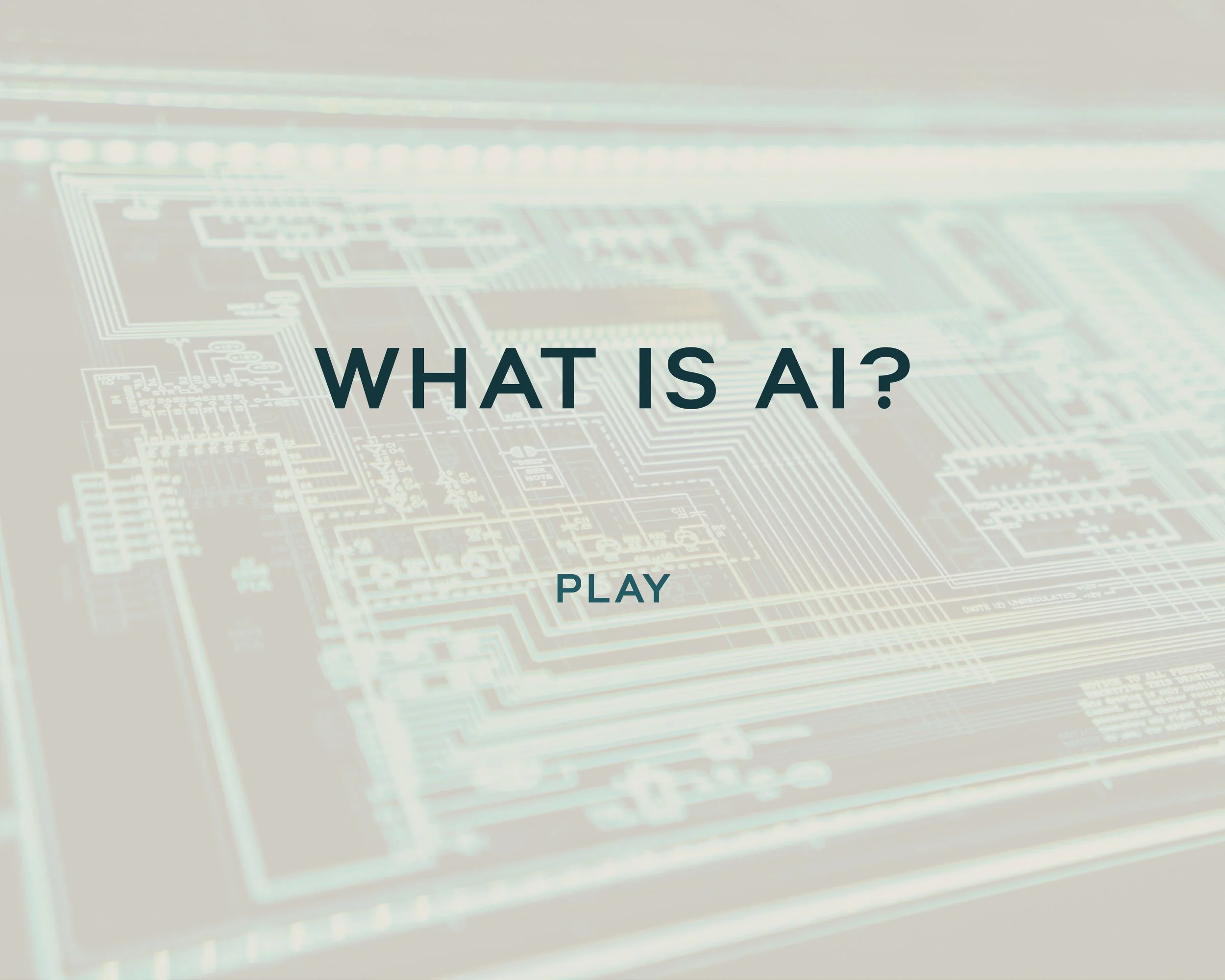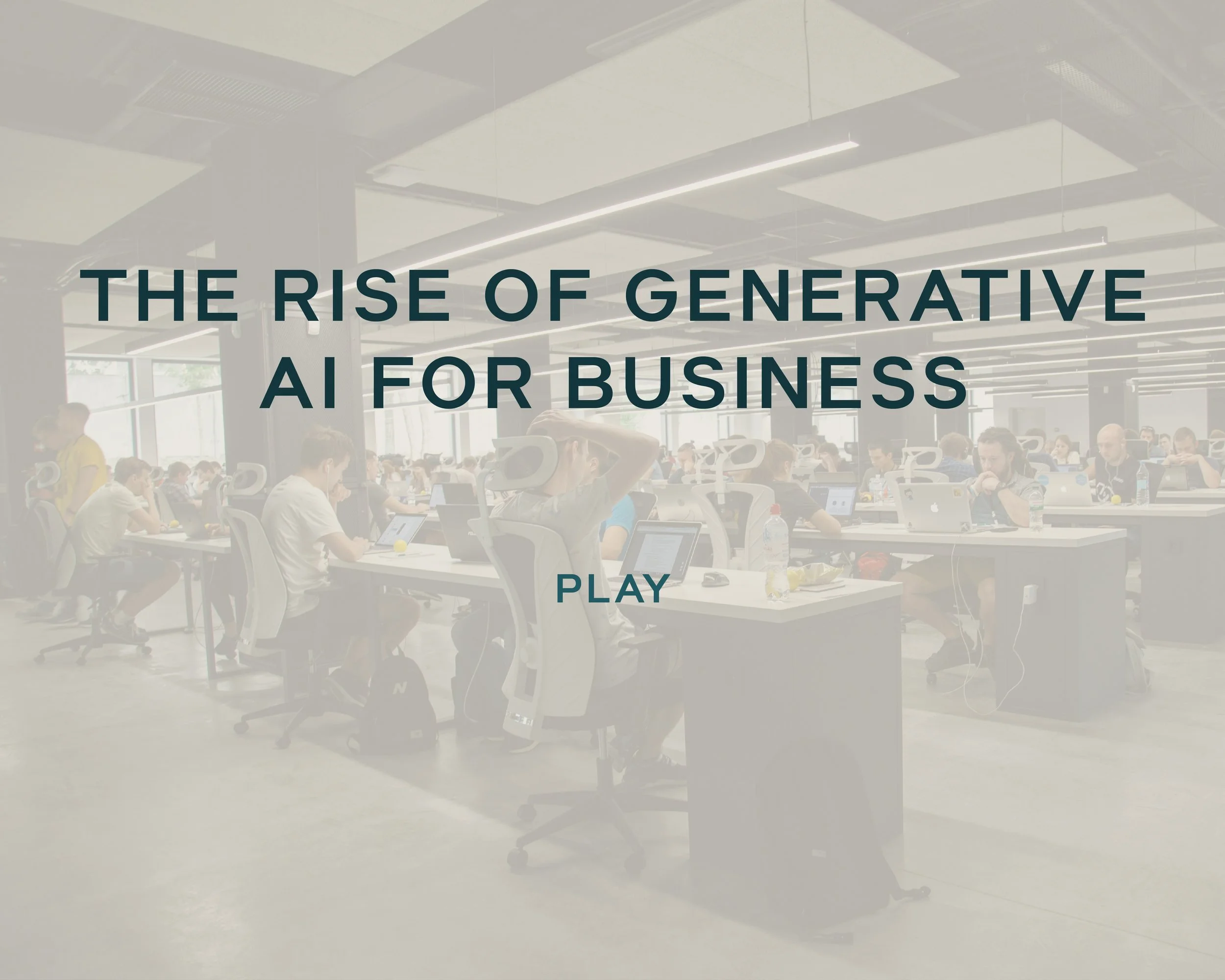59% agree that competitive advantage depends on who has the most advanced generative AI.
72% of CEOs see industry disruption as a risk rather than an opportunity.
62% of CEOs say they will need to rewrite their business playbook to win in the future, rather than play to existing strengths.
Source: IBM Institute for Business Value
WHAT IS AI?
Artificial Intelligence, or AI, is a set of technologies that enable computers and machines to perform tasks that typically require human intelligence. This includes things like understanding language, recognising patterns, learning from data, and making decisions.
AI is a machine carrying out action and improving the action from experience to achieve its objective. Having processed our data, the answers these machines give are constrained by the narrow objectives for which they were designed.
Leaders must responsibly consider what AI is used for and what level is required for each application of AI given machines cannot sense or judge as part of their decision making. Different levels of AI can be Active (human always makes final decision), Operational (AI performs decision making for micro tasks) or Systemic (micro and macro decisions made by AI) with changes being made by humans for intervention and training the AI.
What is Gen AI?
Generative artificial intelligence (AI) is a type of AI that can be used to create new content, including audio, code, images, text, simulations, and videos. Generative AI relies on sophisticated machine learning models. The large language models have been trained on trillions of parameters using that information to understand users natural language questions and respond with relevant new content.
“Organisations have bought into the hype jumping to implement the latest Co Pilots. The digital assistants only save around 14 minutes per day for your workforce on tasks like finding information, writing documents and taking meeting minutes.
Taking meeting minutes for a meeting that didn’t need to occur with multiple employees in attendance is not enhancing your enterprise wide operating efficiency or revenue.
We must approach AI linked to your strategy, considering end to end workflows and leveraging your data securely in your data platform. A focus on value identification, ability to scale and robust AI governance defined upfront is critical”
Lindsey Hershman
Managing Director AI Access
What can you use AI for?
CONTENT CREATION
Generative AI can produce high-quality written content, graphics, and videos, significantly reducing the time and cost associated with marketing and communications. For example, AI can draft reports, generate social media posts, or create compelling ad copy, ensuring consistency and adherence to brand guidelines.
Product Development
By analysing vast datasets, generative AI can suggest new product designs, features, or improvements, fostering innovation. It can simulate and test these designs virtually, accelerating the development cycle and reducing R&D costs.
Customer Service
Advanced chatbots and virtual assistants powered by generative AI can provide personalised and efficient customer support. They can handle a wide range of inquiries, learn from interactions to improve responses, and ensure 24/7 availability.
Data Analysis and Insights
Generative AI can synthesise complex data into meaningful insights and predictive models. It can identify trends, forecast demand, optimise pricing strategies, and provide actionable business intelligence, enabling more informed decision-making.
Automation of Routine Tasks
Routine administrative tasks such as scheduling, data entry, and report generation can be automated using generative AI. This not only enhances efficiency but also allows employees to focus on more strategic and creative tasks.
Personalised Marketing
Generative AI can analyse customer data to create highly personalised marketing campaigns. By understanding customer preferences and behaviours, it can tailor content and offers to individual customers, improving engagement and conversion rates.
Strategic Advantages of AI
Cost Efficiency: By automating content creation and routine tasks, generative AI can significantly reduce operational costs.
Speed and Scalability: AI can process and generate outputs much faster than human capabilities, allowing businesses to scale operations quickly and respond to market changes in real-time.
Innovation: The ability to generate new ideas and solutions can drive innovation, giving businesses a competitive edge in developing unique products and services.
Enhanced Customer Experience: Personalised and efficient interactions foster customer satisfaction and loyalty.
54% of leaders expect AI to deliver cost savings this year. Of those, roughly half anticipate cost savings in excess of 10%, primarily through productivity gains in operations, customer service, and IT.
Source: BCG survey of 1,400+ C Suite Executives
Critical Risks to consider with Gen AI




